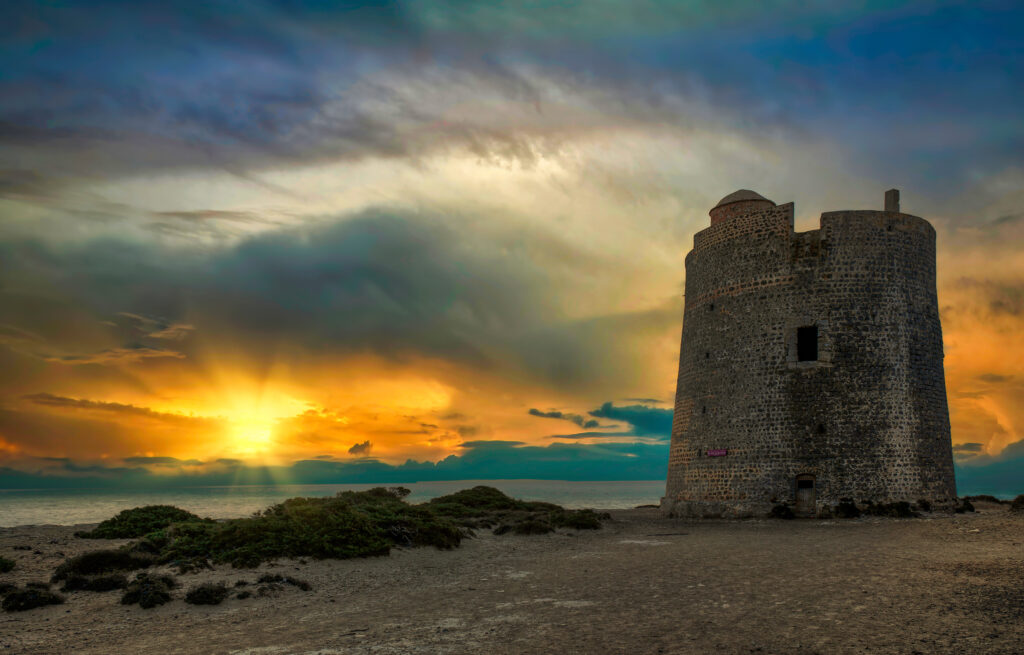
Ibiza, The Connection Between “Payeses” and Hippies
Ibiza served as the meeting point between modernity and tradition in the 1960s. During that time, many Americans chose to migrate to escape the call of the Vietnam War, which did not align with the ideals of these young people of that era. The Americans who belonged to the counterculture of the time called themselves hippies. They fell in love with the island, its customs, and the freedom that permeated Ibiza. Thus, a strong connection was formed between the “payeses” of Ibiza and the American hippies, a connection that would forever mark the island’s culture.
The “payeses,” dedicated to agriculture and craftsmanship, have been the keepers of the island’s tradition and culture for generations. Their way of life revolves around agriculture and the production of local foods such as “sobrasada,” “camaiot,” and “pan Pagés.”
Ibiza’s gastronomy is enriched by the presence of the “payeses” and their production of local foods. One of the most notable culinary treasures of the island is “sobrasada ibicenca.” This is a variation of “sobrasada,” a typical sausage from the Balearic Islands. “Sobrasada ibicenca” is a delicacy made from pork meat, paprika, salt, and spices, slowly cured to develop its distinctive flavor. It is a smooth and spiced delight enjoyed in sandwiches, rice dishes, and tapas.
In the 1960s, Ibiza became a haven for the hippie community seeking an alternative lifestyle. The hippies were drawn to the island’s natural beauty, relaxed atmosphere, and the hospitality of the local population. Many of them settled in rural communes and mingled with the “payeses,” leading to an intriguing cultural fusion.
The hippies influenced the island with their appreciation for natural and organic food. “Sobrasada” and other local products became popular ingredients in their kitchens. The combination of the island’s culinary heritage with the ideals of the hippies gave rise to a unique fusion of flavors and lifestyles that is still evident on the island today.

